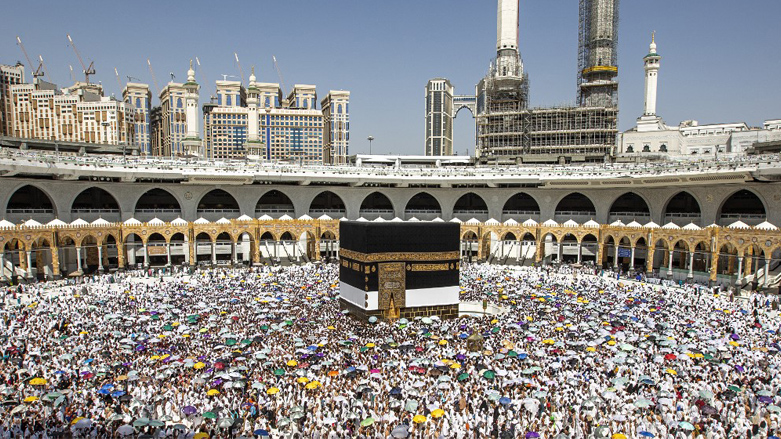Kurdish Hajj pilgrims to return from Saudi Arabia

ERBIL (Kurdistan 24) – More than 600 Kurdish Hajj pilgrims are set to come back to the Kurdistan Region, beginning on Monday after undertaking the Islamic ritual in late June, the government announced.
The 690 pilgrims will leave Mecca by bus and return back to the Kurdistan Region on Monday, a statement from the Ministry of Endowment and Religious Affairs said.
Another 3,990 pilgrims will embark on the journey from July 7-11 by airplane, per the press release.
At least four Kurdistan Region pilgrims have died during the Hajj season, mostly due to underlying conditions and aging, according to government figures. They have all been buried in Mecca.
The first batch of pilgrims began the spiritual journey on June 9 by buses from Kurdistan Region’s provinces to Saudi Arabia, where they performed the ritual for six days.
Approximately 37,000 pilgrims from both Iraq's Kurdistan Region and its federal provinces have performed Hajj this year.
Nearly 1.8 million Muslims participated in the Hajj in 2023, according to Saudi Arabia’s official figures. No major incidents or disease outbreaks have been recorded, the authorities have said.
This year’s Hajj has been hailed as the largest gathering since the COVID-19 pandemic in 2020, which stopped the ritual for a year before its resumption a year later for domestic visitors.
More than 6,500 people were treated for heatstroke, marking this year the hottest for the Hajj so far, according to the Saudi Ministry of Health.
International pilgrimage to Saudi Arabia resumed in 2022 after a two-year pause due to the coronavirus pandemic.
Performing Hajj is one of the five pillars of Islam, obligating all able-bodied and financially eligible Muslims to undertake the ritual once in their lifetime.
Millions of Muslims visit the holy sites in Makkah and Madinah annually, on the eighth day of the Dhu Al Hijjah, the last month of the Islamic calendar.
The most famed part of the rituals is circumambulating the Kaaba shrine, which is considered the holiest site on the planet by all Muslims.
While the pilgrimage only takes six days, most Muslims spend weeks praying in the twin holy cities. Many Muslims also participate in a shorter form of pilgrimage, called Umrah, at any other time of the year.
The annual religious ritual generates $12 billion in revenues for the oil-rich monarchy.
